 W
WVytautas Alantas was a Lithuanian writer, journalist, and political ideologue. Educated in France, Alantas worked as a journalist of the Lithuanian news agency ELTA and chief editor of the official daily Lietuvos aidas. Alantas was one of the leaders of Young Tautininkai, an organization of radical young members of the Lithuanian Nationalist Union in the late 1930s – this movement is also known as Vairininkai after the political magazine Vairas. A sympathizer with national socialism, Alantas is considered to be one of the chief ideologues of totalitarian nationalism in interwar Lithuania. During the Nazi occupation of Lithuania, he participated in the Lithuanian Activist Front (LAF) and later emigrated to the United States where he dedicated his life to literary work. He was a prolific writer and published seven collections of short stories, six novels, fifteen plays, four non-fiction books, and one poetry collection. His writings primarily deal with patriotic themes and topics.
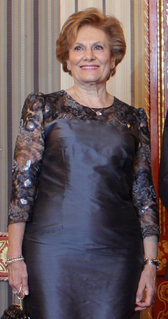 W
WMaria Alves da Silva Cavaco Silva is the wife of Aníbal Cavaco Silva, the 19th President of the Portuguese Republic and, as such, was the First Lady of Portugal from 2006 until 2016.
 W
WPaulius Galaunė was a Lithuanian art historian, museum curator, and graphic artist. He was one of the first professional museum curators in Lithuania and was well-published on topics of Lithuanian folk art. The apartment of Galaunė and his wife Adelė Nezabitauskaitė, an opera singer, was converted into the Galaunė Family Museum in 1995, and contains his personal belongings as well as his works. It is part of the M. K. Čiurlionis National Art Museum. He was buried in Petrašiūnai Cemetery.
 W
WTarja Kaarina Halonen is a Finnish politician who served as the 11th President of Finland, and the first woman to hold the position, from 2000 to 2012. She first rose to prominence as a lawyer with the Central Organisation of Finnish Trade Unions (SAK), and as the Prime Minister's parliamentary secretary (1974–1975) and a member of the City Council of Helsinki (1977–1996). Halonen was a Social Democratic Party member of parliament from 1979 until her election to the presidency in 2000. She also served as a minister at the Ministry of Social Affairs and Health from 1987 to 1990, as Minister of Justice from 1990 to 1991, and as Minister for Foreign Affairs from 1995 to 2000.
 W
WAntanas Kriščiukaitis also known by his pen name Aišbė (1864–1933) was a Lithuanian writer and judge, who served as the chairman of the Lithuanian Tribunal from 1918 to his death.
 W
WOna Mašiotienė née Brazauskaitė was a Lithuanian teacher and principal, women's rights activist and writer. She helped found the Lithuanian Women's Association, the first women's rights organization in the country, and lectured on the need for equality of men and women. Pressing for both women's rights and Lithuania's independence, she served as a member of different societies and a delegate to several political conferences and assemblies. As a teacher, she organized the first Lithuanian-language girls' gymnasium in Vilnius and was the principal of a secondary school in Kaunas for over a decade. In 1921, she was elected to serve on the Utena regional council for two terms. She was one of the co-founders and the first president of the umbrella Lithuanian Women's Council. Recognized by the independent Lithuanian government with national awards, she was dismissed from her teaching post after the Soviets reestablished authority over the country.
 W
WMette-Marit, Crown Princess of Norway is the wife of Crown Prince Haakon. Haakon is the heir apparent to the throne, which means that should he ascend to the throne, she will automatically become Queen consort of Norway.
 W
WKazys Musteikis was a Lithuanian military brigadier general, Lithuanian Minister of National Defence in 1938–1940.
 W
WNursultan Abishuly Nazarbayev or Nursultan Abishevich Nazarbayev is a Kazakh politician currently serving as the Chairman of the Security Council of Kazakhstan since August 1991 who previously served as the first President of Kazakhstan, in office from 24 April 1990 until his formal resignation on 20 March 2019. He is one of the longest-ruling non-royal leaders in the world, having ruled Kazakhstan for nearly three decades. He was named First Secretary of the Communist Party of the Kazakh SSR in 1989 and was elected as the nation's first president following its independence from the Soviet Union. He holds the title Elbasy.
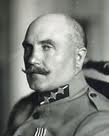 W
WMārtiņš Peniķis (1874–1964) was a Latvian general and commander in chief of Latvian Army from 1928 to 1934. He was awarded with Order of Lāčplēsis and Order of the Three stars.
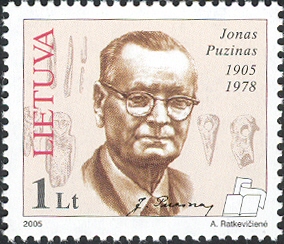 W
WJonas Puzinas was Lithuanian archaeologist and specialist on the prehistory of Lithuania. He belonged to the first generation of Lithuanian scholars who matured in independent Lithuania (1918–40). He was the first scientifically trained archaeologist of Lithuania and he laid the foundations, including some of the basic terminology and periodization, for future archaeological studies. His work in Lithuania was cut short by World War II. In 1944, he retreated to Germany and then to the United States. There he continued his academic work, notably editing Lithuanian encyclopedias.
 W
WAleksandras Mykolas Račkus was a Lithuanian physician and an active member of the Lithuanian American community known for his numismatic and other collection. In 1917, he co-founded the Lithuanian Society of Numismatics and History in Chicago. In 1935, his and the society's collections were acquired by Lithuania and are held by the M. K. Čiurlionis National Art Museum. He then restarted a Lithuania-themed collection which was acquired by the Balzekas Museum of Lithuanian Culture in 1965. A collection of various documents related to Lithuanian Americans and their organizations and societies is kept by the Martynas Mažvydas National Library of Lithuania.
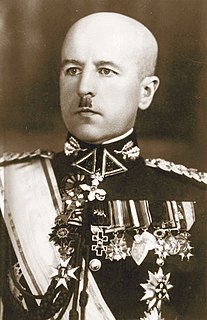 W
WStasys Raštikis was a Lithuanian military officer, ultimately obtaining the rank of divisional general. He was the commander of the Lithuanian Army from September 21, 1934 to April 23, 1940.
 W
WJan Syrový was a Czechoslovak Army four star general and the prime minister during the Munich Crisis.
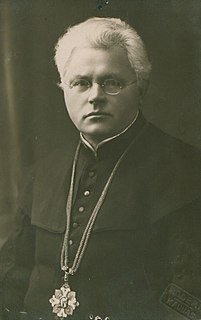 W
WJuozas Tumas also known by the pen name Vaižgantas was a Lithuanian Roman Catholic priest and an activist during the Lithuanian National Revival. He was a prolific writer, editor of nine periodicals, university professor, and member of numerous societies and organizations. His most notable works of fiction include the novel Pragiedruliai and the narrative Dėdės ir dėdienės about the ordinary village folk.
 W
WVincas Vitkauskas was a Lithuanian general. He became commander of the Lithuanian Army after the resignation of Stasys Raštikis in January 1940. In this capacity, Vitkauskas opposed armed resistance to the Soviet occupation in June 1940 and subsequently collaborated with the new Soviet regime.
 W
WJosef Votruba was a Czechoslovak officer and a man persecuted by the communist regime of Czechoslovakia. In 1938 he was commander of III Army Stefanik and Land Commander in Slovakia and Subcarpathian Russia. He was a supporter of active defensive tactics.